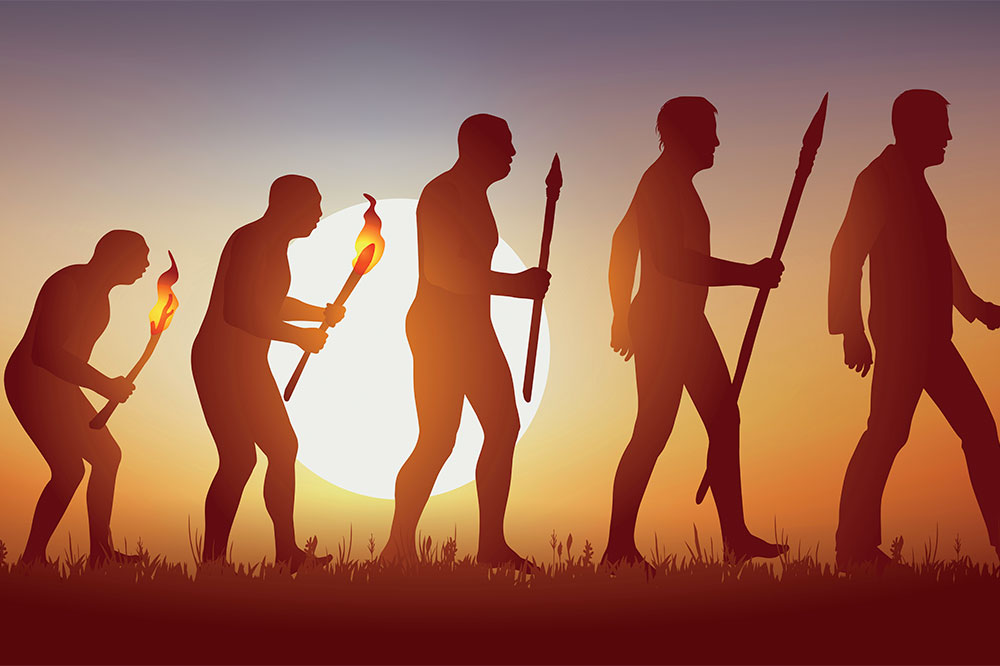Evolution of society and its primary characteristics
Society is loosely defined as a group of people with common territory, culture, and interaction. A social group consists of two or more people who interact and identify with one another. People who live in societies do not need to have geopolitical borders like those between two neighboring countries. Both society and its members are interdependent in order for their community to flourish. This article discusses the evolution of society and its primary characteristics.
Types of societies
Humans are social beings, and since time immemorial, they have been forming societies to meet their shared needs. Each of these societies served various purposes at the time that they were established.

Hunting and gathering societies
Hunters and gatherers created one of the earliest forms of society recorded, which were small and simple. People who lived in these societies chose resource-rich areas as their primary occupation was to hunt and gather food. Individuals had limited possessions and frequently moved from place to place.
Pastoral societies
Pastoral societies emerged about 12,000 years ago. The members relied on products obtained through domestication and breeding animals for transportation and food. Such societies still exist today, especially in desert regions where large-scale agriculture and manufacturing are unavailable. Furthermore, the community is obliged to move to different land when the current location can no longer support animal grazing.
Horticultural societies
Fruits, plants, and vegetable cultivation were the primary occupation of horticultural societies. The type of society appeared around the same time as pastoral societies. A similarity shared between both horticultural and pastoral societies was mobility. Members would move to a new land when the resources in their present location were depleted.
Agricultural societies
Members of agricultural societies used rudimentary technology to cultivate crops like rice, corn, barley, and wheat, over large land. Over time, the advancement in technology helped boost the food supply, subsequently leading to a growing population as compared to the societies of the past. The increase in population and food also led to the formation of towns. These towns then turned into trading centers for people, including educators, craftspeople, merchants, religious leaders, and rulers.
Industrial societies
With advancements in technology came the dawn of industrial societies. Here people created factories and used machinery to get work done. Societies started being more strictly segregated according to socio-economical means. The inequality was higher compared to earlier establishments.
Postindustrial societies
With the introduction of the computer microchip came a technological revolution. The revolution led to the dawn of postindustrial societies. The people in this community function based on knowledge, information, and buying and selling of services. The postindustrial era is mainly concerned with consumerism, the availability of goods, education and training, and social mobility. It is a long way off from the primitive society of hunters and gatherers.
Characteristics of a society
Its people are at the heart of every society. Without people living in it, it is impossible to create such a community. Note that societies refer to a system of social relationships, not just a group of people. Therefore, society needs to have a set of characteristics, such as differences, likeness, inter-dependence, permanency, dynamism, cooperation and conflict, a web of social relationships, comprehensive culture, accommodation, and assimilation.
Responsibilities of people in a society
While society needs people, it is equally important for the members to be to have structured roles and responsibilities. By doing so, they can ensure that their society thrives for generations. A few roles individuals play as part of society include being the neighbor, a house owner, and a tenant. However, it is imperative to follow other responsibilities. Members must:
Maintain clean surroundings at home or when they are outside.
Pay maintenance charges on time to ensure there are sufficient funds for the society to spend on maintenance or on upgrades. Furthermore, the funds are utilized to pay common bills such as a building’s electricity and water bill.
Participate in societal activities such as meetings, recreational activities, and elections. Participation helps improve how a society functions as every member has something different to contribute.
Live in harmony with others to avoid any discrepancies. If there are disputes with regards to sharing parking space, among other factors, then these must be resolved in a respectable and orderly manner.
Follow all the rules and regulations set by society. If there are any rules that a member finds concerning, they must bring them up during meetings for a satisfactory resolution. Breaking the rules may result in disruption of society and other members.
